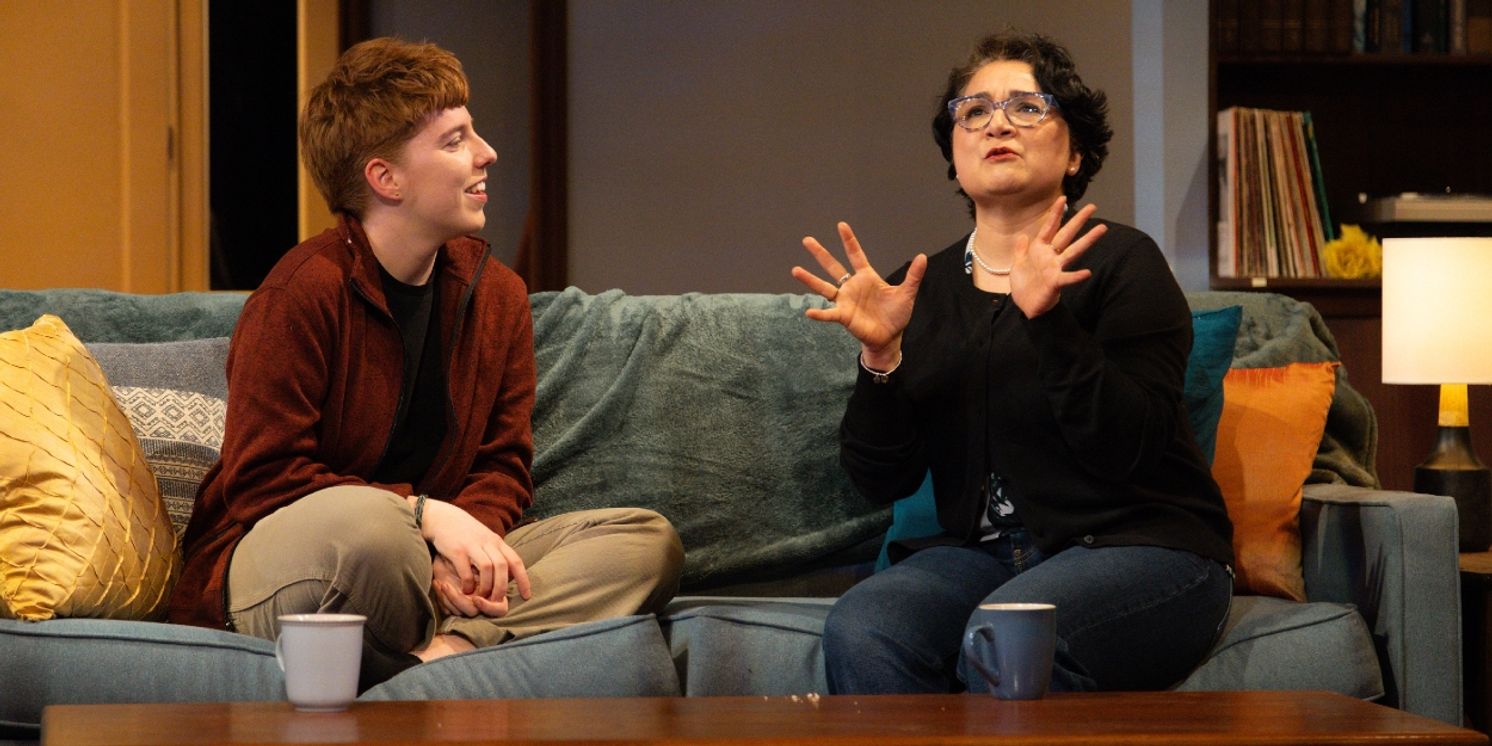Review: EL TERREMOTO at Tarragon Theatre
Quintana's refreshing play may shake you from your seat

“Did anybody else feel that?” a Facebook friend in Manhattan posted Friday morning. Then, like streaks of lightning, the posts came pouring in, lines radiating out from the epicenter.
“Earthquake!”
When the ground beneath your feet starts to move, it's an unmooring, dangerous feeling. That’s the sensation that shakes at the core of Christine Quintana’s complex and refreshing new play, EL TERREMOTO (The Earthquake), now playing at Tarragon Theatre. With rich, full characters and a seismic second act, Quintana’s tale may shake you from your seat—even without the help of the intense rumble produced by the sound system.
Set in Vancouver, the playwright’s home town, EL TERREMOTO chronicles the intersecting fault lines that are the past, present, and potential future of a family where each member stands in a liminal space between forward motion and stagnation.
Luz (Mariló Núñez), in her mid-40s, is the eldest sister of three. She serves both as a professor and, for the past 20 years, as the steadfast cornerstone of her family, ever since her parents were killed in a car accident and her Abuela (Rosalba Martinni) moved from Mexico to care for the family in the aftermath. Alma (Mónica Garrido Huerta), a seismologist, and Jaime (Juan Carlos Velis), an engineer, came to Vancouver from Mexico City via Los Angeles to further her research post-PhD, but left their children unmoored and grasping for structure in the wake of their deaths.
Fussy, neurotic and motherly, Luz gives into none of her desires or impulses, which puts her at odds with middle sister Rosa (Miranda Calderon), an architect and condo developer who’s outspoken, theatrically depressed, and something of an alcoholic. Then, there’s Lina (Margarita Valderrama), whose 21st birthday party catalyzes the play, a “surprise” child decades younger than her siblings who was an infant when her parents died. Lina’s recent enrolment at UBC, after taking as many pandemic gap years as possible, has raised within her questions about identity and how much she really knows about her heritage.
Viewers, especially those who also saw Soulpepper’s masterful production of Inua Ellams’ version of Chekhov’s Three Sisters, may notice some similarities in characterization to that titular trio, but Luz, Rosa, and Lina still maintain their uniqueness, and the story’s similarities end there.
Each sister has a counterpart who’s simultaneously welcomed into the family and held at arm’s length: there’s long-term “uncle-father-friend” presence, neighbour Omar (played with appealing warmth by Sam Khalilieh), who provides a grounding, sympathetic presence for Luz but may require excessive emotional support in the wake of his divorce and mother’s death, college friend Henry (Michael Scholar Jr.), whose unconsummated desire for Rosa is addictive and destructive for them both, and Tash (Caolán Kelly), Lina’s charming non-binary beau, whose patience and adoration for her waver when they start to feel used as a symbol rather than a partner.
Quintana’s writing shines in its specificity, allowing for familiar characters who aren’t stereotypes, and conflicts that seem natural while not always resolving in expected or cliché ways. In the second act, after the ground shakes and things reach a fever pitch of both crisis and humour, Quintana makes a swift change in style, navigating from the well-written domestic drama to a meta-commentary on magical realism. It’s abrupt, pointed, and delightful.
Here Guillermo Verdecchia’s direction truly asserts itself, leaving us with echoes of his breakout hit Fronteras Americanas in the way Samay Arcentales Cajas’ projections of maps, fault lines, and shimmering halos of people dance over the walls, and in how the characters comment on the cultural tropes that they resist or eagerly assign themselves. Their demographics inform every part of them, but are in no way their full story.
The relationships between the characters seem alive and real, assisted by strong, grounded (ha?) performances. Martinni’s Abuela is a master of the pointed silence, speaking volumes in the way she drags herself around the room, lights a memorial candle, or pats a couch cushion with ferocity, daring the recipient to see what happens if they choose not to take the command. As Luz, Núñez nails the moment where she fully realizes she’s the same age of her parents when they died.
She also manages to portray a naturally anxious character who can also be a calming presence to people who don’t push all of her buttons; her conversation with Tash is one of the show’s highlights, as is Kelly’s careful (metaphorical and literal) tiptoeing around the family home as an interloper to the family dynamics at play. Valderrama plays the young Lina with the constant question of whether she’s actually hurt or using the language of oppression to manipulate, so that when you can finally tell that her pain at not being able to connect with her fellow Latinx students through language is honest, it’s wrenching.
Shannon Lea Doyle’s set has to do double duty pre- and post-earthquake, and after a longer-than-usual intermission, it’s a treat to see it transformed and full of additional surprises. Michelle Ramsay’s lighting keeps us focused on the parental portrait to one side and the carved circular stone tablet on the other, and costume designer Fernando Maya Meneses really gets to celebrate colour and Mexican imagery in the oh-so-secret second act.
And sound designers Alejandra Núñez and Christopher Elizabeth’s ominous rumbling? You’ll feel it in your gut.
The earthquake that so worried my New York friends was a mere 4.8 on the Richter scale, nowhere near the grand end-of-days quake that may one day transform life on the west coast. In writing about the end, Quintana sees the celebration and disaster live on the same plane, a catalytic force that, for better or for worse, boots you out of that liminal space between forward motion and stagnation.
Photo of Caolán Kelly & Mariló Núñez by Cylla von Tiedemann
Reader Reviews

Videos

